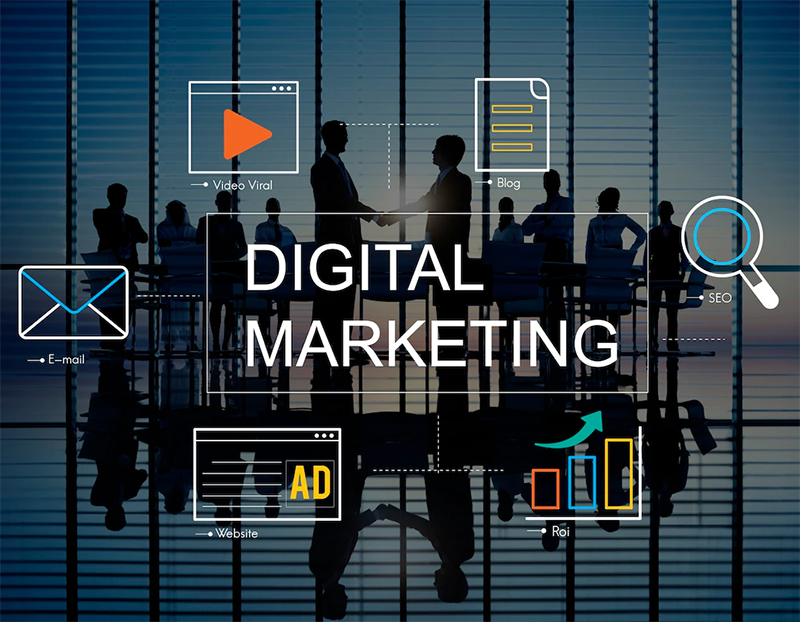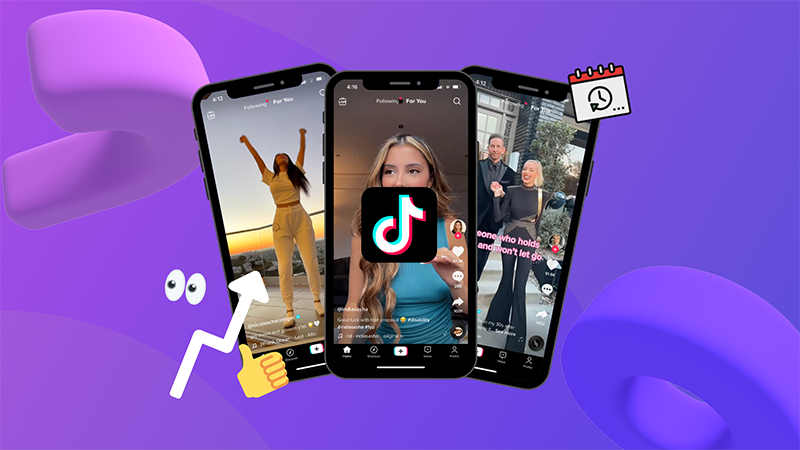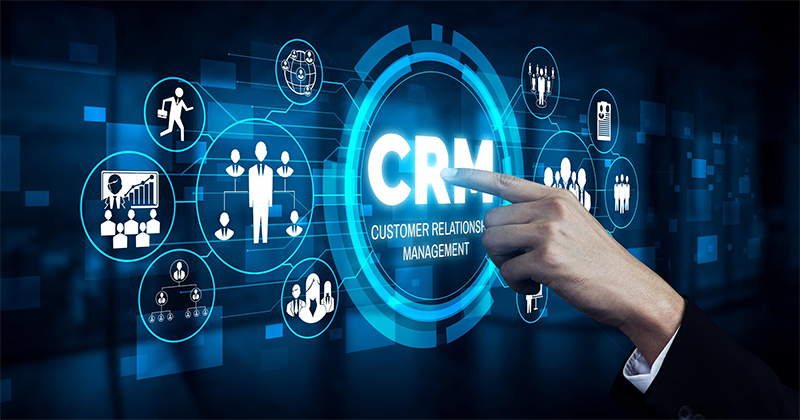As the world becomes increasingly digitized, the field of marketing is evolving at a rapid pace. In order to stay ahead of the curve, digital marketers must continuously invest time and energy into upskilling and learning. With a sound understanding of algorithms and new changes or features, marketers can position themselves and their companies for success.
In this post, we’ll provide a definition of digital transformation and give you some examples of how it’s being used. We’ll also share some trends on how you can start transforming your marketing strategy. By staying abreast of these trends, digital marketers can stay ahead of the competition and deliver successful campaigns for their businesses. Let’s get started!
Table of Contents
What is Digital Marketing Transformation in Marketing?
A digital transformation in marketing refers to the shift from mindlessly using digital channels for marketing to actively pursuing digital excellence. This means leveraging data to gain insights that improve the customer journey and deliver more personalized experiences. In order to achieve this, businesses need to invest in technology and data-driven marketing platforms. They also need to create a culture that values innovations and empowers marketers to experiment with new approaches.

As businesses grapple with the ongoing COVID-19 pandemic, many are turning to digital marketing as a way to reach their customers and promote their products or services. Overall, Digital marketing is not only more cost-effective but also more flexible and personalized. This shift is helping marketers to achieve their goals in ways that were simply not possible before.
Trends of digital transformation in marketing Marketer Can’t Ignore in 2023
AI in Marketing
In recent years, however, AI has begun to move from the realm of fiction into the reality of everyday life. Thanks to advances in technology, AI is now being used in a wide variety of fields, from medicine to transportation. Perhaps one of the most significant ways in which AI is being used today is in marketing. By analyzing customer data, AI-powered chatbots are able to provide personalized recommendations and targeted ads. What’s more, AI can also help businesses to identify customer trends and preferences. In short, it’s safe to say that the world of marketing is being transformed by AI.
Metaverse
Before metaverse, social media platforms were one of the few efficient ways for brands to connect with their customers online. But now, with metaverse, brands have a whole new landscape to explore. In the metaverse, brands can create their own virtual spaces where they can interact with customers in a more personal way. This opens up a whole new world of possibilities for marketing and customer engagement. With metaverse, brands can create immersive experiences that go beyond the limitations of traditional social media. For example, brands can host virtual events, providing customers with a unique and interactive brand experience. By creating unique and interactive experiences, brands can reach consumers on a whole new level. In the coming years, social commerce is likely to continue to grow and evolve, providing brands with new and innovative ways to connect with customers.
Personalization
Automated email marketing can be a great way to reach out to your customers on a personal level and let them know about upcoming sales or events. By setting up triggers or schedules, you can ensure that your emails are sent out at the right time and to the right people. Personalized emails can be far more effective than mass emails, as they show that you are taking the time to connect with your customers on a one-on-one basis. In addition, automated email marketing can save you time and money in the long run by ensuring that your messages are always sent on time and to the right people.
Programmatic Advertising
Programmatic Ad Buying is the use of software to purchase digital advertising. While the traditional method includes human negotiation, requests for proposals, and quotes, programmatic buying makes use of algorithms and machines to buy ads. The automation is quick, and efficient which ultimately increases conversions and lowers the customer acquisition cost.

Programmatic Advertising is rapidly increasing every year and is predicted to be used for a huge majority of display advertising in the next couple of years. There are numerous benefits that make Programmatic Advertising so attractive such as real-time bidding, greater audience targeting, improved ad relevance, and increased transparency. Real-time bidding allows for each ad impression to be bought and sold on an open marketplace in real-time. This process happens in milliseconds which gives advertisers more control over their ad spending.
NFTs and crypto
NFTs are becoming increasingly popular as a way to verify and trace multi-step transactions, increase transparency, and ensure security. Brands are catching onto this trend by using tech platforms to create assets that can be sold online or in virtual worlds. Blockchain is the technology that enables NFTs to function. It helps verify and trace multi-step transactions, increases transparency, and ensures security. It also reduces compliance costs and speeds up data transfer. As a result, blockchain is playing an essential role in the emerging world of NFTs.
Conversational marketing and quality interactions
Brands have been communicating with their customers for years, so conversational marketing isn’t anything new. But with the rise of social media and chatbots, this kind of conversational marketing is growing on an even larger scale and changing the landscape of how businesses have interactions with their customers.
By focusing on building relationships with customers through one-on-one conversations, companies can create a more personal connection that can lead to increased loyalty and advocacy. And because these conversations are happening in real-time, they can quickly address any concerns or questions a customer might have, leading to a better overall experience.
Artificial intelligence
In recent years, advancements in Artificial intelligence (AI) have led to more intuitive reporting, automating general marketing tasks like monitoring site traffic and boosting search engine optimization for organic reach. However, the most exciting application of AI in marketing is its ability to predict customer behavior. Using AI to predict your customer’s next move means you can target them with the product or service they need, right when they need it. This kind of targeting will lead to high conversion rates and the sense that you understand your customers and their needs without being intrusive or overwhelming them with irrelevant targeting. As AI continues to evolve, it will become an increasingly important tool for marketers who want to stay ahead of the competition.
Short, DIY videos
The short video is another top digital transformation in marketing trends today. The great thing about these short videos is that everyone has the ability to create them via their phones, though they might not be very polished. Nevertheless, these short engaging video content are candid, behind-the-scenes, DIY, real stories, and have a more unpolished look is what younger consumers want. Brands are quickly taking notice of this new trend and are utilizing influencers to get in front of this new Gen-Z audience.

TikTok has shifted the landscape of social media away from status updates and curated photo grids in favor of short video posts. Today, TikTok has become an essential marketing tool for businesses large and small. Furthermore, It didn’t take long for other platforms to jump on the bandwagon, with Instagram launching its Reels feature and Youtube leaning into ‘shorts.’
Omnichannel marketing
Omnichannel marketing was one of the buzzwords of 2020. In a world where customers are increasingly connected and have more choices than ever before, omnichannel marketing is the process of marketing across multiple platforms — such as social media, apps, email, and blog posts — to offer an enhanced customer experience and cohesive brand message that leads to higher conversions and loyalty.
With more and more SaaS companies providing the tools to manage multiple channels more efficiently, implementing an omnichannel strategy is easier than ever. The benefits of omnichannel marketing are clear: customers have a better experience, and brands see higher conversions and loyalty. For businesses that want to stay ahead of the curve and provide a truly integrated experience for their customers, omnichannel marketing is the way to go.
How Is Digital Transformation Changing Marketing? Detailed Case Study
Transforming a business in order to perform better in the digital economy is not an easy task. It requires an amalgamation of innovation, leadership, technology, and vision. It is more of a technical game. Below are some companies that have embraced digitalization in marketing to prove a considerable advantage and set great examples of digital transformation in marketing.
Domino
Domino’s Pizza is one of the world’s leading pizza brands that has set a great digital transformation in marketing. Its goal was to deliver hot and freshly made pizzas directly to consumers. They adopted artificial intelligence and chatbot technology and leveraged the anywhere, anytime nature of Facebook Messenger and a conversational interface. Users who already had a Domino’s Pizza account could use Facebook Messenger to reorder a previously ordered pizza or jump straight into ordering their regular choice. The users also received timely updates on how their pizza was coming along and could track it, from preparation to delivery. businesses could invest in conversational AI as it offered a whole new category of capabilities that business leaders needed to consider when they served their customers. By investing in such technology, Domino’s Pizza was able to deliver on its promise of hot and fresh pizzas directly to consumers.
AUDI
As the world becomes increasingly digitized, more and more companies are looking for ways to integrate digital technologies into their operations. This is especially true in the automotive industry, where companies have had to find new ways to reach consumers and sell their products. One company that has been leading the way in this digital transformation and marketing is AUDI. The company has introduced a number of innovative digital solutions, including the Audi City concept. This concept uses micro-showrooms in city centers to introduce users to the brand’s entire catalog of car models. The Audi City solutions have been shown to be highly effective, increasing sales by 60% compared to traditional showrooms. As the world continues to digitize, AUDI will likely continue to be at the forefront of innovation, developing new and better ways to serve its customers.
GameStop
GameStop has been on quite the journey lately and they don’t seem to be slowing down anytime soon. They’ve made many daring moves, including removing all of their debt, opening up strategically placed fulfillment centers, expanding their product categories, and setting up omnichannel marketing. Each of these steps has put them in a better position to succeed in today’s market. And now they’re diving into blockchain and NFTs. This is a very exciting development because it could potentially revolutionize the gaming industry. It would allow customers to buy and trade games through a blockchain network, which would enable game developers to continue to benefit from their products even after they’re sold. This would be a huge win for the gaming community and it’s something that we’ll definitely be keeping an eye on. GameStop is definitely a company to watch in their digital journey progress.
What Essential Skills Every Digital Marketer Needs to Know?
As these examples show, businesses need to be at the forefront of technology to succeed in the digital economy. With the right mix of innovation and vision, companies can make the transition and reap the rewards. Here are some skills you should consider when come to digital transformation in marketing to growth in both sales and brand equity
SEO & SEM
Search Engine Optimization (SEO) and Search Engine Marketing (SEM) are two of the most important skills that every digital marketer needs to have. SEO is the process of optimizing content for the search engines, while SEM is the process of marketing that content to the search engine users.

Both SEO and SEM are important for running a successful digital marketing campaign. SEO helps you to push your content to the target audience, while SEM helps you to narrow down your customer database. Having a solid knowledge of both SEO and SEM is crucial for running a successful digital marketing campaign.
Data Analytics
Data analytics has become an essential tool for marketers in digital transformation in digital marketing, as the online landscape has become increasingly complex and diverse. With a plethora of online tools now available to measure data across different platforms, it has become relatively easier for marketers to analyze and make relevant marketing decisions. However, it is important for marketers to understand the concept of data cleansing, which refers to the process of getting rid of incorrect, duplicated, or incomplete data from the database. Constantly updating the database and getting rid of unwanted data is crucial in order to make effective decisions. By utilizing data analytics effectively, marketers can gain a competitive edge and improve their overall performance.
CRM
Good customer service is the lifeblood of any business. It’s no secret that happy customers are more likely to return and recommend a company to others. By monitoring the customer experience, companies can gain valuable insights into the growing needs of their target audience. This, in turn, helps them to make better-informed decisions about product development and marketing strategies.

CRM software can help businesses keep tabs on their customers across multiple channels, including email, phone calls, social media, and surveys. By tracking this data, businesses can create detailed customer profiles that can be used to optimize marketing and sales efforts. Additionally, CRM systems can help businesses track customer loyalty and engagement, as well as identify potential leads. As a result, CRM software is a valuable tool for any business that wants to improve its customer management strategy. Some of the biggest CRM companies that use information systems wisely and efficiently include Apple, Amazon, and Accenture.
Knowledge of Visual Marketing
Design skills are not only useful for those who want to work as designers. In today’s world, appealing visuals are important in all sorts of fields, from advertising to online marketing. Even if you’re not interested in a career in design, learning the basics of design and acquiring some basic design skills can be helpful in many different ways. For instance, if you ever need to create a presentation or pitch an idea to a client, being able to create visually appealing slides will make a much better impression than simply using plain text. Additionally, if you ever need to communicate your ideas to a design team, understanding some basic design concepts will allow you to do so more effectively. In short, while design skills may not be essential for everyone, they can be useful in a variety of different situations.
Content Creation
The heart of digital marketing is generating content that will pull a company’s target audience to the brand. The aim should not only be to create high-quality content and SEO-friendly content, but also to understand the process of how to effectively get audiences to engage. It is recommended to make creating evergreen content a part of the goal. This means that if a customer finds the content a day later or years later, the information will still be relevant to their needs. Creating such content requires an understanding of what the target audience is looking for, as well as what type of information they are likely to engage with.
Additionally, it is important to consider how often the content should be updated in order to keep it fresh and relevant. By understanding these elements, businesses can create content that will not only attract new customers but also keep existing ones coming back for more.
Leadership Quality
A digital marketing leader should not only be able to come up with innovative marketing campaign ideas, but they should also be able to Persuade and influence others to execute those ideas. A great digital marketing leader will have a combination of analytical thinking and creative problem-solving skills. They will be able to come up with new ideas and then Persuade others to execute those ideas. A big part of being an effective digital marketing leader is having great people skills. You need to be able to convince someone to purchase a product or service. You also need to be able to convince other team leaders that your idea is the best one.
Convincing and influencing others to support your ideas is essential for success as a digital marketing leader.
In conclusion
In the ever-changing world of marketing, it’s important to keep your skills up-to-date and stay ahead of the curve to remain competitive. Our Professional experts in Digital Marketing will give you the digital marketing and soft skills that matter. From SEO to social media, content marketing, and strategy, you will gain up-to-date and relevant knowledge that will help you become an awesome digital marketer. Magenest is happy to assist you every step of the way. Whether you’re a complete novice or an experienced professional, we’ll make sure you have the tools and techniques you need to succeed in today’s digital landscape. So what are you waiting for? Contact us now and start your journey to becoming a top-notch digital marketer!











